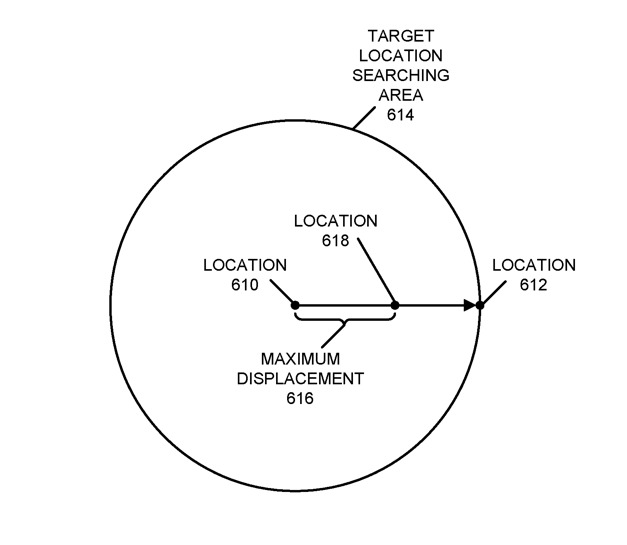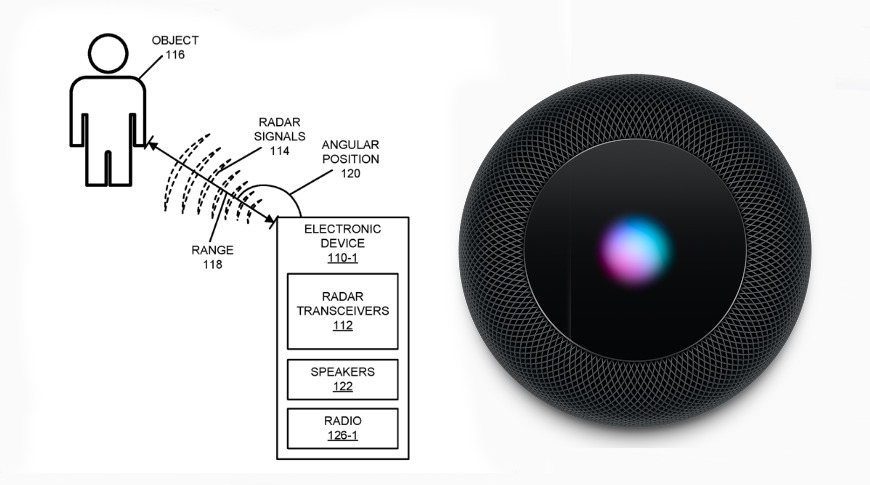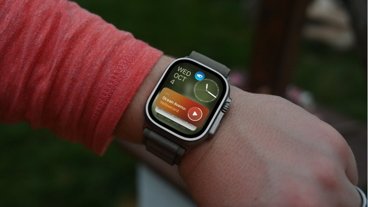Apple devices including HomePod may get the ability to detect the nearby location of a user, act on their gestures, and determine which user it is — plus use this information to make health assessments.
A new patent application from Apple describes how future devices could employ radar to locate nearby users, or their devices. In conjunction with other tools such as voice, the radar-equipped devices could reconfigure themselves to a user's preferences. HomePod, for example, could use this to distinguish which user in a family is speaking to it, and so offer the correct Apple Music subscription.
"Electronic Device with Co-Located Independent Radar Transceivers" takes pains to describe any number of different devices that could have radar added, including iPhones, iPads, Macs, and Internet of Things devices. But it is particularly concerned with addressing a problem that occurs with voice commands, such as using Siri on HomePod.
"Accurately identifying a user of a voice user interface can be challenging," notes the patent, "which may make it more difficult to accurately customize a voice user interface to the preferences and needs of a particular user."
The overall aim is to have a system that requires "little or no advanced knowledge by a user or training for proper operation." Apple wants the user interface to tailor itself automatically "to a user's preferences and their mental model of a task."
So a device can adapt to different users and their preferences, but the device needs to be be sure which person is currently using it. With this proposed solution, the device gets at least one radar transmitter and one radar receiver. It uses these to determine what is in the vicinity of the device and where, quite precisely, everything is.
That will include other devices, so this could facilitate the ability for an iPhone, say, to locate a nearby iPad and send data to it. But it will also be looking for individuals.
"Moreover, the electronic device may identify the individual based at least in part on the radar measurements," continues the patent. "Identifying the individual can include determining a specific identity of the individual or an identifying attribute or characteristic of the individual."
 Devices would intentionally limit the range they would use radar to scan for people and other objects
Devices would intentionally limit the range they would use radar to scan for people and other objects"[The device may detect] one or more dimensions of the environment," continues the patent. "[This may] include an acoustic property of the object in the environment or an acoustic property of the environment. For example... [it] may access a look-up table, stored in memory, with acoustic properties of different materials and/or objects as a function of radar measurements."
The majority of the patent is concerned with identifying a user and also his or her surroundings. Detecting details of the environment could help with adjusting audio playback, and it could help with the accuracy of radar measurements.
As well as determining how near or far a user is, a radar-equipped device could assess different details about that person. "Furthermore, based at least in part on the radar measurements, the electronic device may determine a vital sign and/or a medical condition of the individual," says the patent.
These health aspects could be extensive. In the patent's example uses, it lists multiple types of vital signs that a device could scan for remotely. "[For instance, it] may determine a vital sign of the individual (such as a pulse, a blood pressure, or a respiration rate of the individual) and/or a medical condition of the individual (such as a medical emergency, a disease, a physical symptom, such as a tremor, a physical condition, e.g., dementia based at least in part on a gait of the individual, etc.)."
The patent is credited to three inventors, Mikheil Tsiklauri, Jouya Jadidian, and Vaneet Pathak. Between them, their prior patents include ones on "wireless power transfer," and "Electronic devices having interconnect radiation mitigation capabilities."
Separately, a previous patent application suggests that Apple is also looking to use small and inobtrusive radar systems for its self-driving car.
Stay on top of all Apple news right from your HomePod or HomePod mini. Say, "Hey, Siri, play AppleInsider Daily," and you'll get a fast update direct from the AppleInsider team.
 William Gallagher
William Gallagher







-m.jpg)






 Malcolm Owen
Malcolm Owen

 Charles Martin
Charles Martin


 Mike Wuerthele
Mike Wuerthele
 Christine McKee
Christine McKee


-m.jpg)






13 Comments
HomePod as a health device?! I've wanted the HomePod to be a little more but this is crazy in a good way.
Fix Siri and add acoustic awareness and these will be killer home theatre speakers.
I’ll let others be the beta testers of these smart devices. Perhaps I’m just paranoid but the potential for abuse is high.
This week we saw Israel deploy tracking of individuals using their cell phones, and monitoring people that may have come in contact with infected. Once a government has been authorized to spy on its own people it’s difficult to backtrack. I can see Israel (etc) keeping this power to monitor those that may have come in contact with “dissidents”.
It the US there’s already been warrants issued by analyzing geolocation data...
As for the technology itself, it could be very useful in reporting emergencies. For example, if I grab my chest and fall to the ground, the smart device could ask for a response, and if not forthcoming send alerts to family, request an ambulance, etc.
Maybe when I turn 65+ the benefits will out-way the risks... but for the next 2 decades, no thanks.